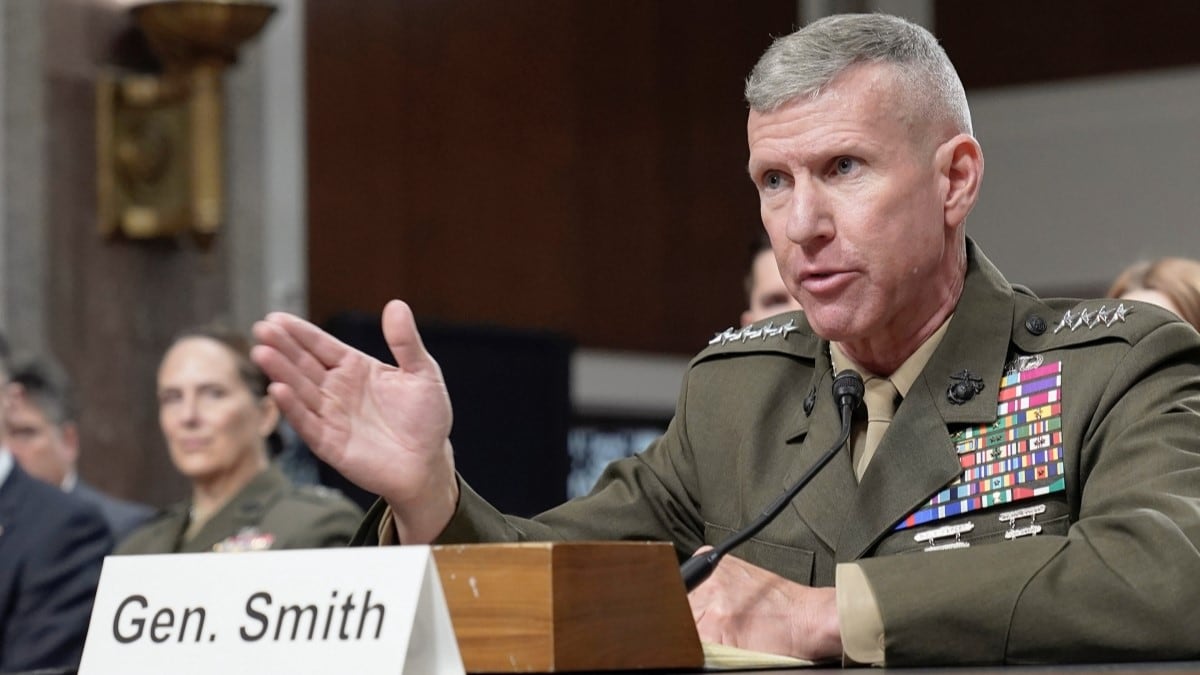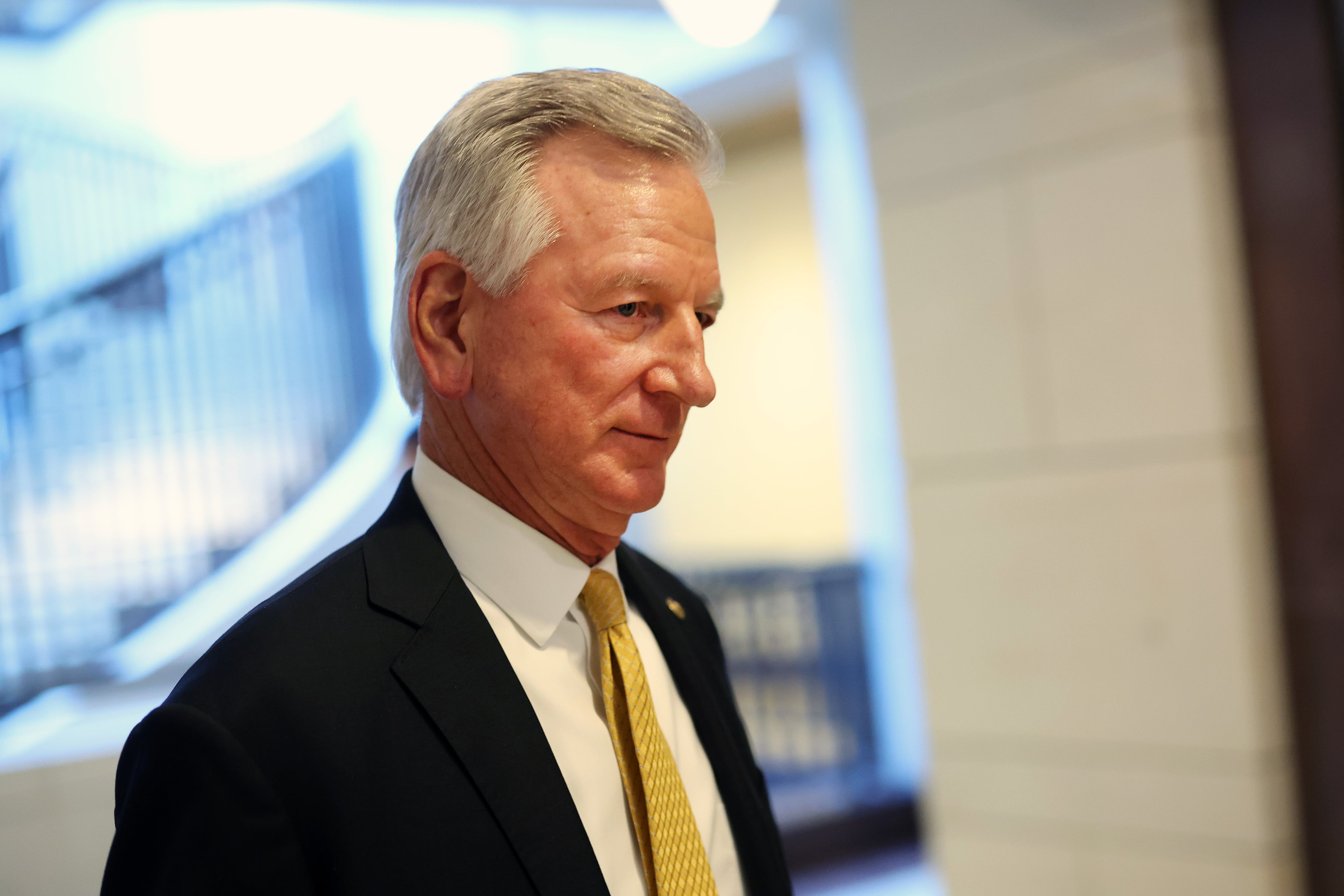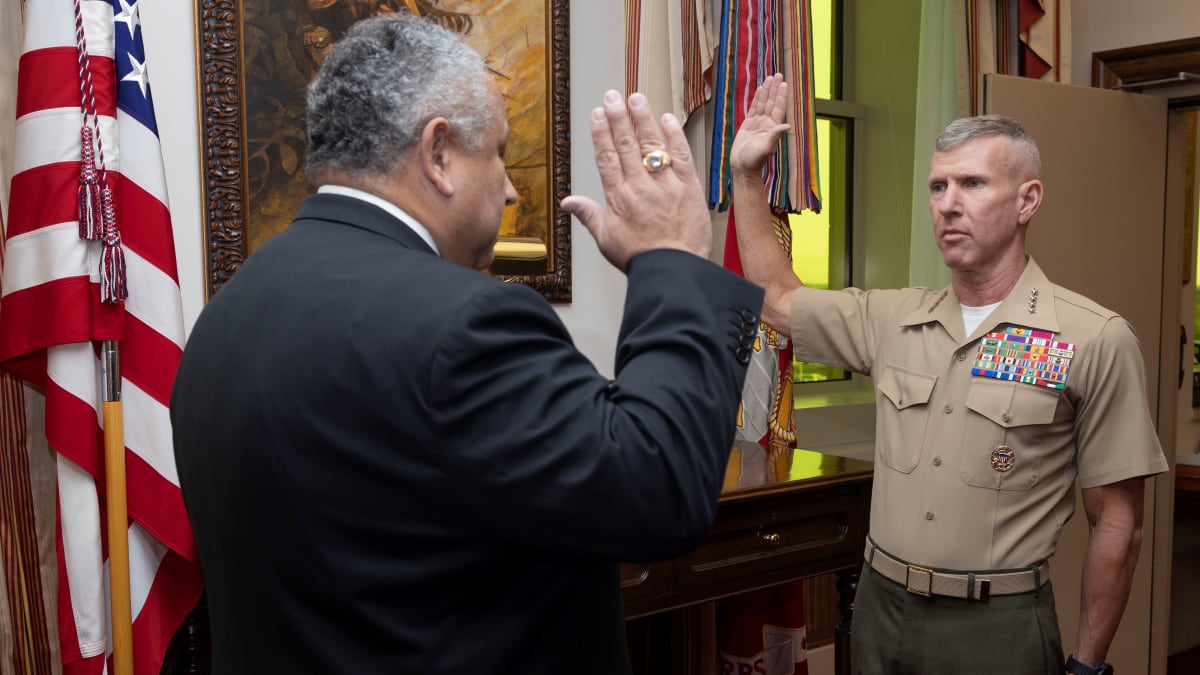When Gen. David Berger became the Marine commandant in 2019, he was ushered into the job with a formal ceremony at Marine Barracks Washington, complete with a band performance and a receiving line.
But when Gen. Eric Smith took on the role Friday morning, it was in a small ceremony at the Pentagon. Smith was dressed in his service uniform, the typical Marine uniform for a typical Friday at work, as Secretary of the Navy Carlos Del Toro swore him in.
Fewer than 10 people were in attendance: Smith; his wife, Trish; Del Toro; and a few of Smith’s and Del Toro’s staffers, according to Smith’s spokesman, Maj. Joshua Larson.
The low-key ceremony came one day after the Senate confirmed the Marine general to be the 39th commandant, following a monthslong period in which the Marine Corps was left without an official top leader.
RELATED

Smith is a career infantryman who has been a champion of Berger’s force modernization initiative, which he helped design. President Joe Biden in May picked Smith, then the assistant commandant, as the Marine who would replace Berger upon his legally required retirement July 10.
But Sen. Tommy Tuberville, R-Alabama, has refused to provide his consent to the confirmation of batches of senior military nominations, in protest of a Pentagon policy offering paid leave and reimbursement for travel expenses for troops seeking out-of-state abortions.
As Tuberville’s blockade put the number of nominees awaiting confirmation above 300 people, Senate Democrats held individual votes Wednesday and Thursday on the nominee for chairman of the Joint Chiefs Air Force Gen. Charles Q. Brown, Army chief nominee Gen. Randy George and Smith.
Ninety-six senators, including Tuberville, voted Thursday afternoon to confirm Smith, and no senators voted against confirmation. Brown and George also were confirmed.
Following his confirmation Thursday, George, who was on a trip to visit troops in Alaska, was sworn in by the Army secretary over the phone. Brown hasn’t yet been sworn in; the current chairman of the Joint Chiefs of Staff, Army Gen. Mark Milley, won’t retire until the end of September.
As the assistant commandant, Smith had also been performing the duties of commandant since Berger’s departure in July. Juggling the two top roles has left him with a schedule that was “not sustainable,” he told reporters earlier in September, voicing concerns about his ability to make the best decisions in the long run on a persistent lack of sleep.
That situation is likely to remain the same unless the Senate makes additional confirmations. Smith no longer is the assistant commandant, but neither is anyone else, so he has no designated deputy. The nominee for that job, Lt. Gen. Christopher Mahoney, is still stuck in Senate limbo.
RELATED

But Senate confirmation does allow Smith to issue the commandant’s long-term planning guidance for the force. It gives him the official title of commandant, a step up from assistant commandant. And he can move into the Home of the Commandants, a historic white building at Marine Barracks Washington.
“I am grateful the Senate took action to allow the Marine Corps to have a confirmed Commandant, and I am humbled to have the opportunity to continue to serve Marines,” Smith said in a statement Friday. “I remain mindful that dozens of junior Marine officers, families, and their units remain in an unstable position as they wait for confirmation. I look forward to the day when all Marines and their families enjoy the stability they deserve.”
Irene Loewenson is a staff reporter for Marine Corps Times. She joined Military Times as an editorial fellow in August 2022. She is a graduate of Williams College, where she was the editor-in-chief of the student newspaper.





